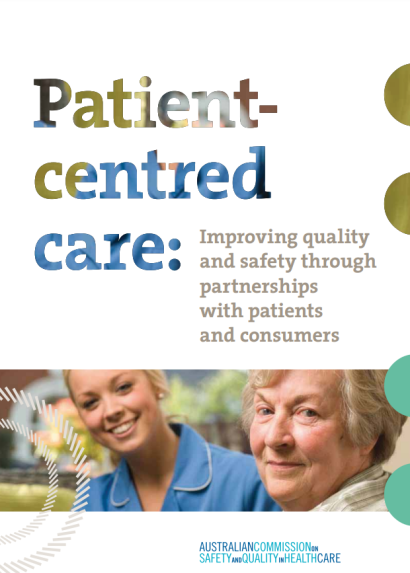Rationale and approaches to person-centred care
Person-centred care is a way of supporting greater involvement of consumers in health care, which in turn creates better health outcomes. Over the past two decades, person-centred care has become internationally recognised as a dimension of delivering high-quality health care.
Australia has a strong commitment to a healthcare system that is based on partnerships with consumers. Many health services have taken steps to embed person-centred care principles into practice and provide care that addresses the needs and desires of consumers, as well as their immediate treatment requirements.
Evidence and approaches discussed in this section are taken from Patient-centred Care - Improving quality and safety through partnerships with patients and consumers.

